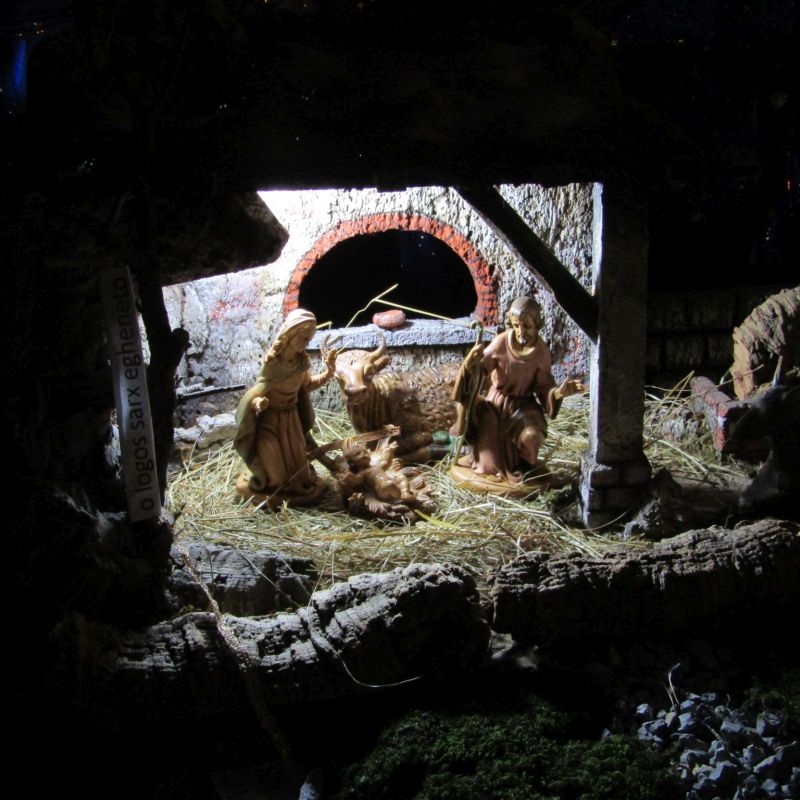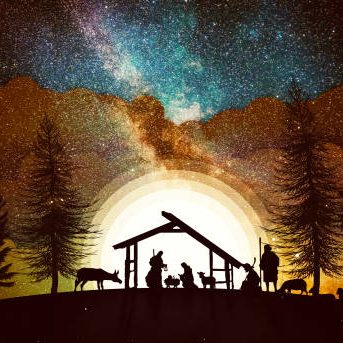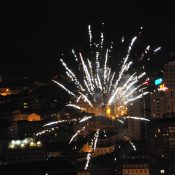Christmas is associated with traditions and songs that evoke memories of our home countries. Each of us has chosen a song that we consider to be of particular importance. And so we have put together a playlist of Christmas songs, which we would like to share with everyone.
Below is a short presentation of the chosen song:
P. Agostino: “Din Don Dan”.
Between joy and nostalgia, a song for the whole family.
P. Iosif: “Astăzi s-a născut Cristos” (Today Christ is born).
Originally a Romanian popular Christmas song, quite old. In the video it is a postmodern elaboration, made by a composer friend of mine from Cluj, Cristian Bence-Muk. I like the way he has managed to revitalise something very traditional. The refrain goes: Lăudați și cântați și vă bucurați! (Praise and sing and rejoice!) So be it!
David: “I re magi” (The Magi).
A festive allegretto from the children’s oratorio, entitled The Christmas of the Innocents. It is composed by Nino Rota, who is particularly well known for the soundtracks of films by Luchino Visconti and Federico Fellini. But he is also a prolific composer of sacred music. The piece is taken from the Gospel of Matthew, the scene of the Magi arriving in Jerusalem.
Raul: “Florile dalbe” (White flowers).
A well-known traditional Romanian song, which young people sing during the Christmas holidays, going to the homes of relatives and acquaintances, to announce the coming feast, the birth of the Messiah.
Pasquale: “Venite pastorelli alla capanna” (Come shepherds to the hut).
I choose this song because it recalls, with the sound of bagpipes, the traditions of southern Italy, for a time that is always nostalgic. The nostalgia that comes with waiting for Jesus.
Christian: “Natale a Pavana” (Christmas in Pavana).
It’s one of Francesco Guccini’s last songs, written and sung in the dialect of his childhood. I like the sense of memory and the music which is both sweet and full of nostalgia.
Péter: “Romanian Folk Dances”.
Béla Bartók is able, with the instruments of classical music, to present you with a piece of raw Romanian and Hungarian folk music. Thus making Christmas a lively experience, similar to the evening when the shepherds go to see Jesus, Mary and Joseph.
Daniel N.: “Barn Jesus i en krybbe lå” (Baby Jesus lay in a manger).
It’s a traditional Danish song that I like a lot. The text is by Hans Christian Andersen and the music by Niels W. Gade, who composed it in 1859.
Guglielmo: “Angelus ad pastores ait” (The angel said to the shepherds).
It is an original chant. The performance by eight voices, in harmony with each other, reminds me of our differences, united in a single song, before the tenderness of a defenceless child, born out of love.
Dániel T.: “Boldogságos Szűz” (Blessed Virgin).
In this piece, two different worlds, two different traditions meet: a Hungarian folk lullaby for the infant Jesus and a 13th century song about a miracle of Mary.
I like encounters of this kind, where diversity does not separate us, but enriches us. For me, Christmas means something similar: contemplating the incarnation of God and giving myself to others as I am.
Gellért: “Betlehem kis falucskában” (In the small village of Bethlehem).
Two voices are enough for the great proclamation: “God the Son became man”. A traditional Hungarian song, presented by two musicians from my country.
Through this playlist you can feel a little more united with us. We wish you all a Merry Christmas.
















